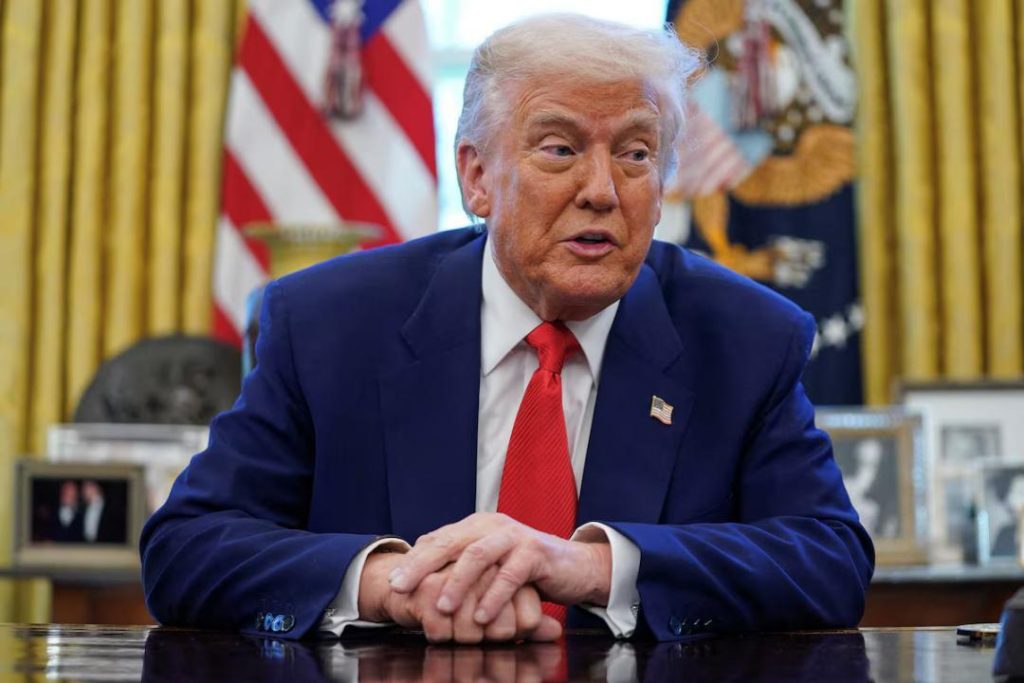
Total Reset Negotiated: Donald Trump on US & China Trade Talks
The United States and China have been embroiled in a trade war for several years, with both sides imposing tariffs on each other’s goods. However, recent developments suggest that the two nations may be nearing a breakthrough in their trade talks. According to reports, US President Donald Trump has described the talks as a “total reset” that has been negotiated in a “friendly, but constructive manner.”
The talks, which began in Geneva, Switzerland, on May 10, 2025, aim to resolve the long-standing trade disputes between the US and China. The US has been seeking to address what it sees as China’s unfair trade practices, including intellectual property theft and forced technology transfer. China, on the other hand, has been pushing for more access to the US market and an end to the tariffs imposed by the US.
In a statement following the talks, Trump expressed optimism about the progress made. “Great progress made,” he said, adding that the two sides had agreed to a “total reset” in their trade relationship. The US President emphasized that the goal of the talks was to create a more balanced and reciprocal trade relationship between the two nations.
The “total reset” that Trump spoke of is likely to involve significant changes to the current trade landscape between the US and China. The US has been seeking to address China’s market access and industrial policies, which Washington sees as restrictive and discriminatory. China, on the other hand, has been pushing for more access to the US market and an end to the tariffs imposed by the US.
One of the key areas of contention is China’s Made in China 2025 policy, which aims to promote the development of key industries such as artificial intelligence, robotics, and clean energy. The US has accused China of using this policy to steal intellectual property and force US companies to transfer their technology to Chinese partners.
The US has also been seeking to address China’s practice of forcing foreign companies to form joint ventures with Chinese partners in order to access the Chinese market. The US has accused China of using these joint ventures to steal intellectual property and gain unfair access to the US market.
In addition to the trade policies, the two sides have also been discussing issues such as intellectual property protection, currency manipulation, and market access. The US has been seeking to increase its access to the Chinese market, particularly in areas such as agriculture and services.
The “total reset” that Trump spoke of is likely to involve significant concessions from both sides. The US may need to relax some of its tariffs on Chinese goods in order to achieve a deal. China, on the other hand, may need to agree to more significant reforms to its trade policies.
The timing of the talks is significant, as the US is heading into a presidential election in 2026. The outcome of the election is likely to have a significant impact on the trade relationship between the US and China. If the talks are successful, it could be a major win for Trump and the Republican Party.
On the other hand, if the talks fail, it could have significant implications for the global economy. The US and China are the two largest economies in the world, and their trade relationship is critical to global growth and stability.
In conclusion, the “total reset” negotiated between the US and China is a significant development in the ongoing trade talks between the two nations. The talks have the potential to create a more balanced and reciprocal trade relationship between the two nations, but they are not without challenges. The outcome of the talks will depend on the willingness of both sides to make significant concessions and compromises.
Source:
https://www.reuters.com/world/china/china-us-trade-talks-begin-geneva-2025-05-10/






